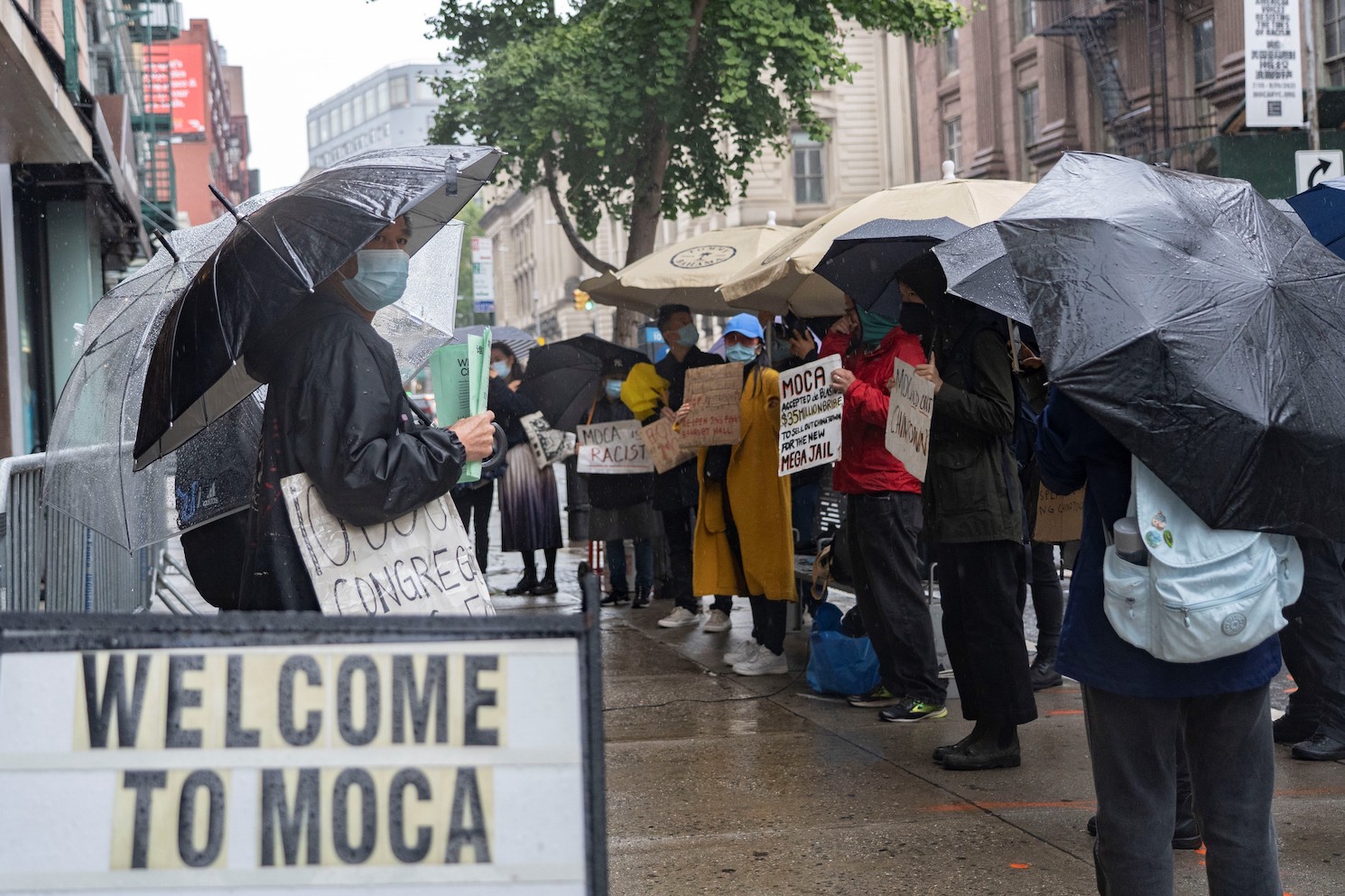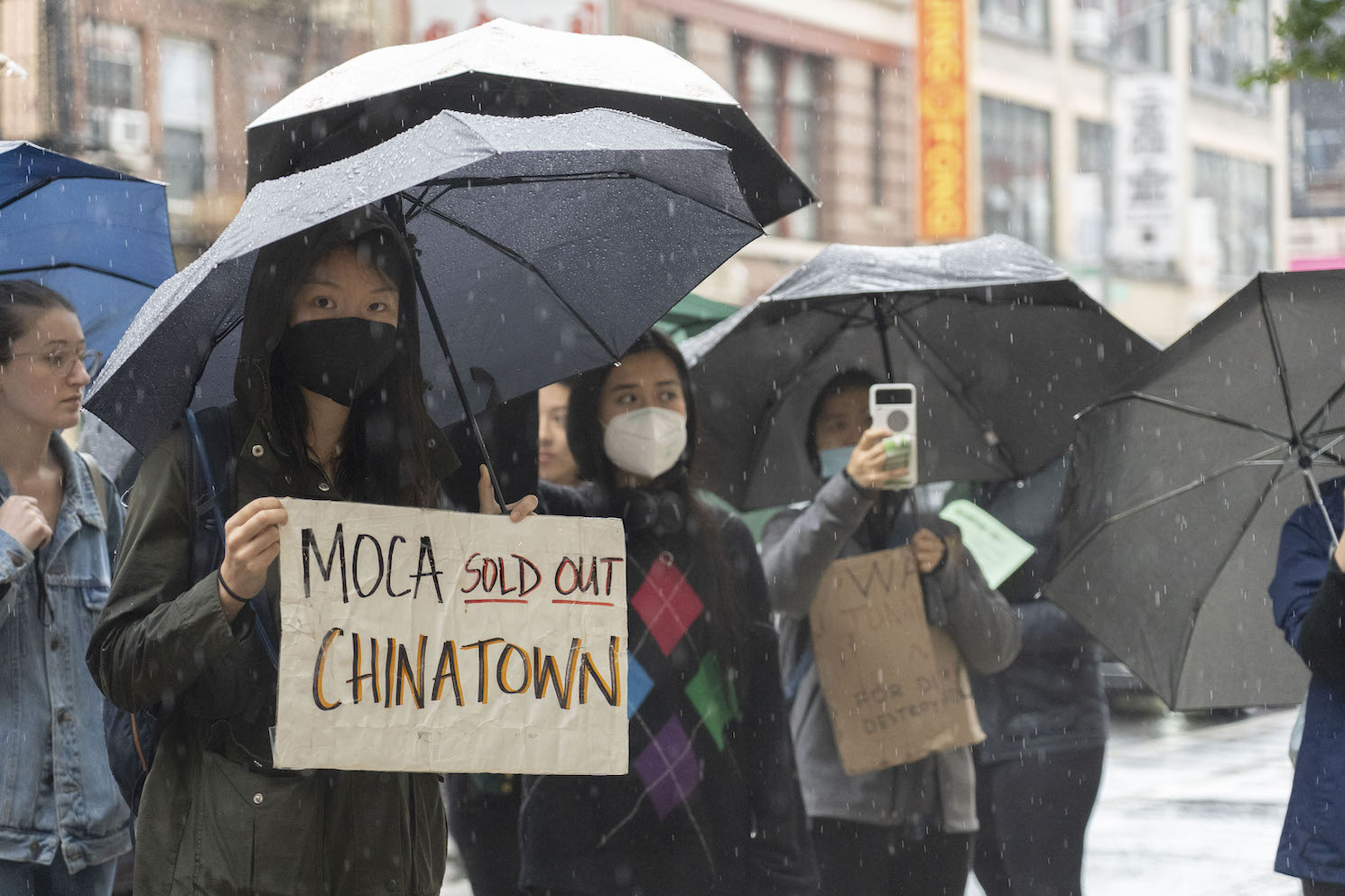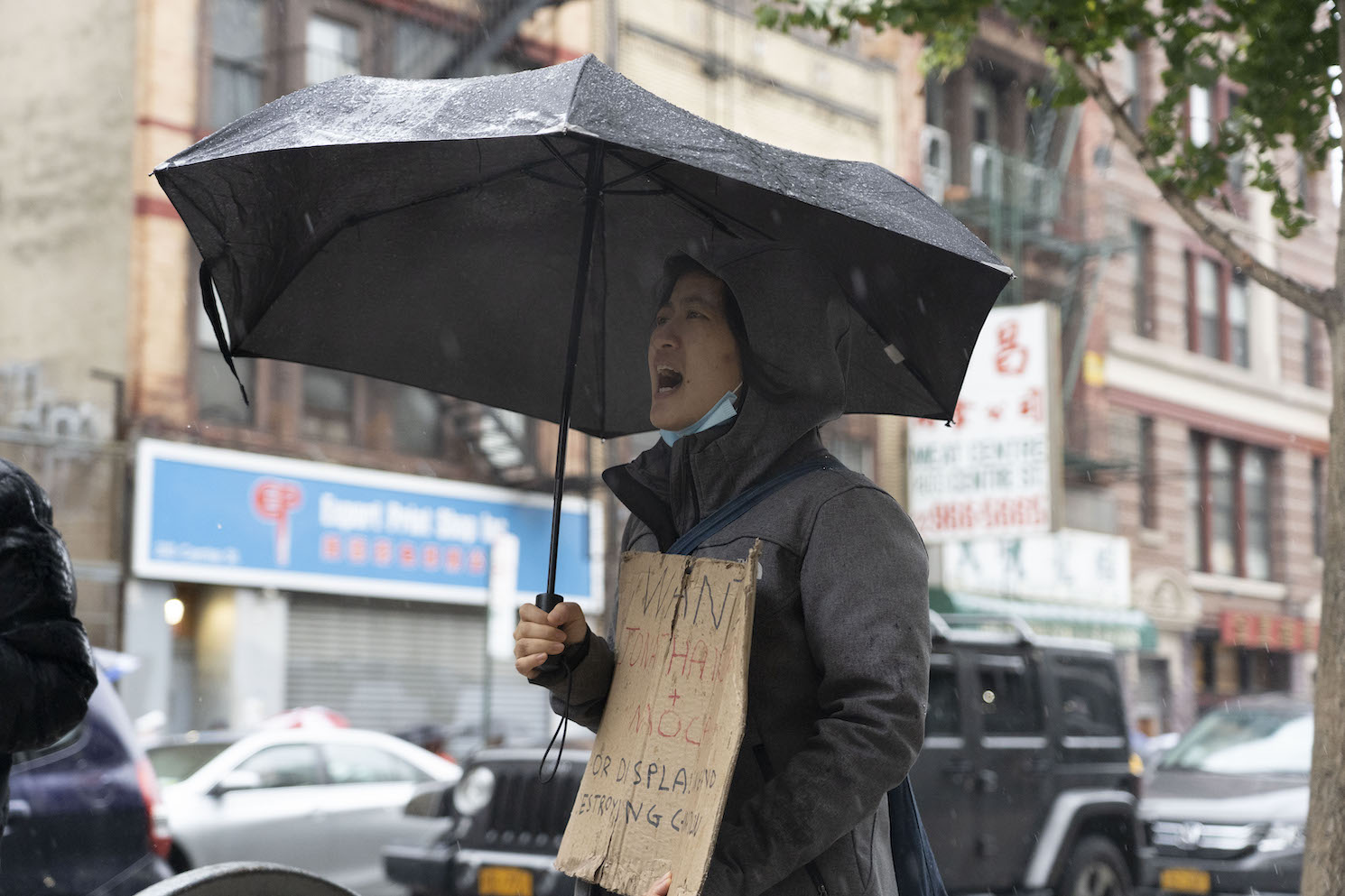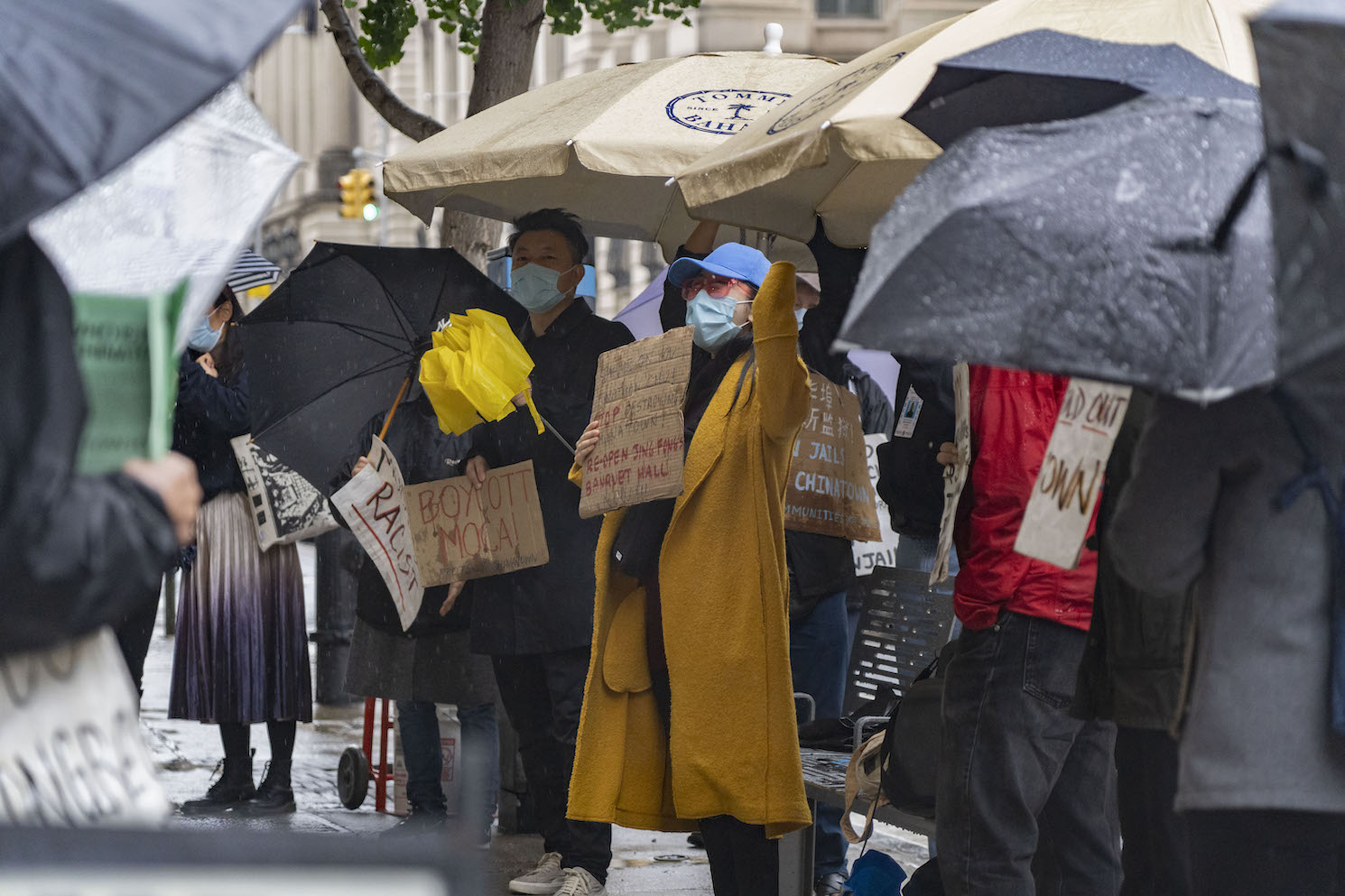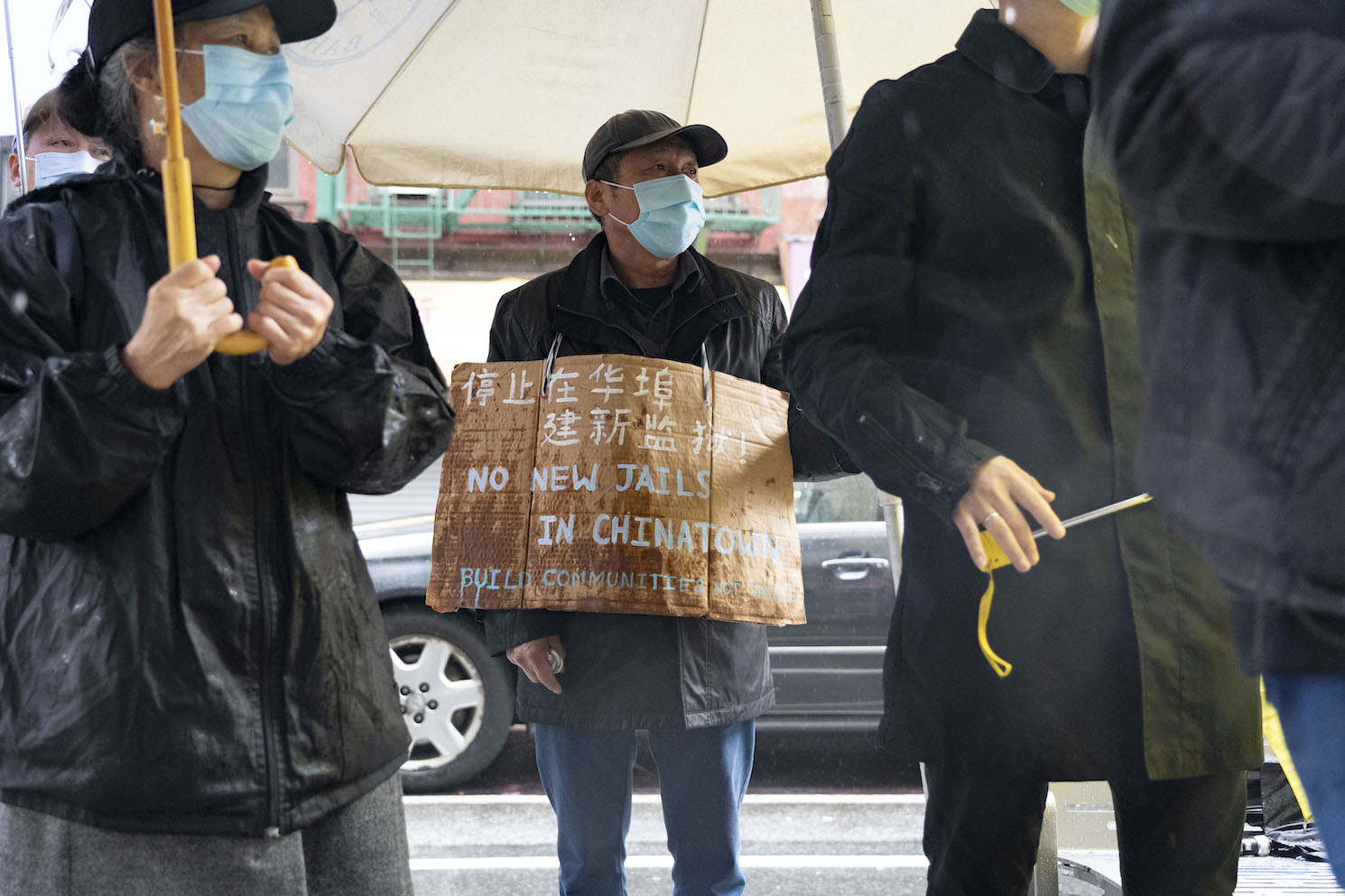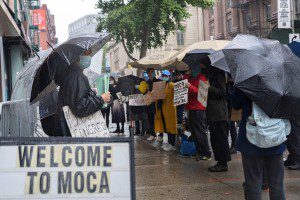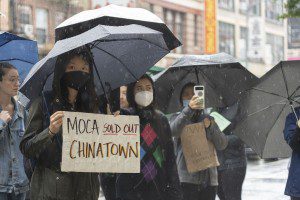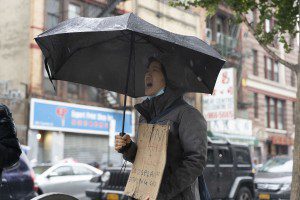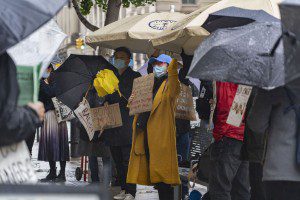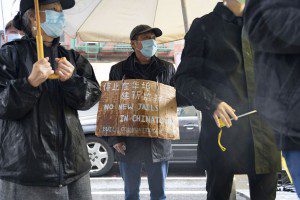Demonstrators boycott Chinatown museum to protest new mega jail
Protesters picketed outside of the Museum of Chinese in America to rally behind MOCA 8 — a group who was ticketed for noise violations — on Sunday, Oct. 2.
October 4, 2022
Dozens of protesters picketed in front of the Museum of Chinese in America in Chinatown on Sunday, Oct. 2, in support of the MOCA 8, a group of protesters who have been given court summons for noise violations at previous protests against the museum. The group takes its name after MOCA, the acronymized name of the museum.
The city’s plan to build a 300-foot-tall detention center in Chinatown included community funding allocated to housing and cultural centers to address what a city press release called “the root causes of incarceration.” MOCA accepted $35 million dollars of the city funding, which kicked off a monthslong string of protests.
Critics of the plan have argued that building a jail in the neighborhood could harm the already-struggling economy and potentially release asbestos from the current building. Some have requested more mental health support and affordable housing from the city instead, arguing that these resources will do more to reduce crime than the addition of a new detention facility.
Gallatin sophomore Audrey Hui, who is also a member of the MOCA 8, has been rallying against the city’s plan for a year. She said she was ticketed in May when she protested a fundraising drive that the museum held to renovate and expand the building.
“It’s an absolute injustice, and it’s absolutely ridiculous that they’re criminalizing protest,” Hui said. “It makes it really obvious, the collusion between MOCA and the NYPD. They want us to stop our picket. They want us to be silent, but we see them as complicit in causing displacement.”
New York City mayor Eric Adams inherited the plan from former mayor Bill DeBlasio, who pledged to put jails in every borough except Staten Island in order to shut down the Rikers Island jail complex by 2027. For Manhattan, the plan involves demolishing the current Manhattan Detention Center in Chinatown and building a new, larger facility in its place. If constructed, the structure would be among the tallest jails in the world — if not the tallest. The protests over the new Chinatown detention center echo a 1982 outcry against a similar plan to build a new jail which was ultimately scrapped.
In addition to MOCA’s acceptance of the city’s grant, Jonathan Chu, the co-chair of the museum’s board, is a major Chinatown landlord who evicted Jing Fong, the largest dim sum restaurant in Chinatown, in February of 2021. A beloved neighborhood institution, Jing Fong was also the last unionized restaurant in Chinatown. Its closure forced the business to lay off more than 100 employees, inflaming community anger at the museum.
At the protest outside of the museum on Oct. 2, protesters chanted “Boycott MOCA” in heavy rain and handed out fliers. Demonstrators also discouraged potential visitors from entering the museum and drummed on empty soy sauce buckets — reenacting the actions that led to the arrest of the MOCA 8.
The Coalition to Protect Chinatown & the Lower East Side — which includes a group of the laid-off workers from Jing Fong — has been protesting against MOCA since 2020, when the museum accepted the city’s funds. They have demanded that the museum redistribute the money to the small businesses and workers of Chinatown most affected by the pandemic, and for the original Jing Fong to reopen.
Although a smaller location of Jing Fong reopened across the street from MOCA, the 318 Restaurant Workers Union wrote in a press release that the smaller location “will not fill the void that landlords Jonathan and Alex Chu carved into the heart of Chinatown,” and said that they will continue to fight for the reopening of the banquet hall.
Sarah Ahn, another MOCA 8 protester, noted that she sees the gentrification of the museum — a part of a community that she said she feels strongly connected to — as emblematic of a citywide issue.
“Over the years, I’ve gotten to know a lot of the workers and residents,” Ahn said. “I live in Queens. It is not as if the same displacement is not happening there as well. This is a citywide problem — what MOCA is doing is bad for Chinatown, it’s bad for the whole city.”
A petition in support of MOCA, created in 2021, has amassed more than 1,000 signatures. The petition states that while signees do not agree with the city’s plan to construct the jail, they do not condone the protests against MOCA and want to redirect the blame toward the city instead of the museum the artists whose work it exhibits.
Ahn, who is Chinese American, said she does not feel represented by the museum or its leadership, and said that the museum’s president, Nancy Yao, has been dismissive of protesters in the past. Yao did not return a request for comment.
“Yao really looks down on her own community,” Ahn said. “She told newspapers when we first protested that these older Chinese workers don’t know how to read and are paid to be here, sharing this lie — these stereotypes — that have hurt Asian communities historically. To use our identities to line their own pockets, to take the $35 million and go against the community, is very bad.”
Hui, the MOCA 8 member, said that although the group’s demands have not been met despite over a year of protesting, she remains unafraid of the police and courts, and has felt the support of her fellow protesters at the Oct. 2 rally.
“A lot of us are here and staying together and that means something,” Hui said. “Even if we don’t get the result we are looking for, we’re not going to stop fighting. We have already been fighting a long time, so we’re going to keep going.”
Contact Michaela Seah at [email protected].























































































































































